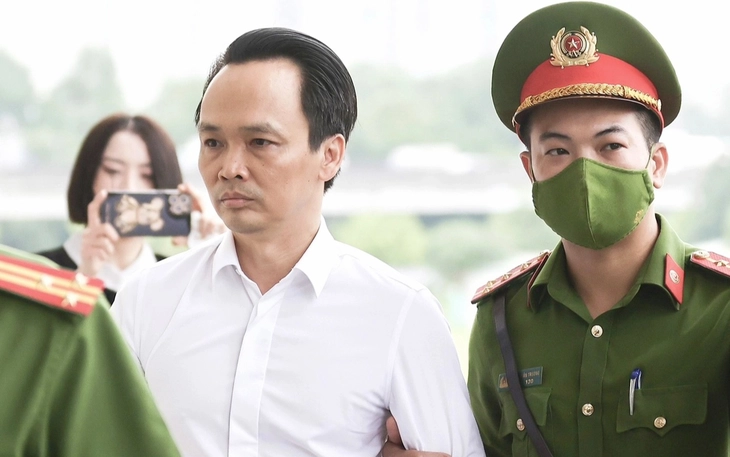On September 20, the Civil Judgment Enforcement Department of Hanoi City announced that it has issued a certificate confirming the results of civil judgment enforcement for Mr. Trinh Van Quyet, former Chairman of FLC Group, and his sister, Trinh Thi Minh Hue, former staff member of the accounting department at FLC Group.
“The Civil Judgment Enforcement Department of Hanoi City issued the certificate of completion of civil judgment enforcement based on the application submitted by Mr. Quyet and his family,” the department stated.
Accordingly, as of August 13, 2025, Mr. Trinh Van Quyet had paid a first-instance criminal court fee of 200,000 VND, a fine of 4 billion VND, a joint civil first-instance court fee of over 1.466 billion VND, and voluntarily contributed nearly 9.6 billion VND to the state budget.
Mr. Quyet and his two sisters, Trinh Thi Minh Hue and Trinh Thi Thuy Nga (former Deputy General Director of BOS Securities Company), were also confirmed to have fully paid the joint amount to be recovered for the state budget, which is the illicit profits gained from stock market manipulation, totaling over 684 billion VND.
Furthermore, the compensation amount of over 1,783 billion VND for 27,881 victims has been fully paid by Mr. Trinh Van Quyet’s family and confirmed by payment receipts. However, the judgment enforcement agency noted that Mr. Quyet’s family did not request a certificate of completion for this specific payment.
The Civil Judgment Enforcement Department of Hanoi City confirmed that Mr. Trinh Van Quyet and his sister have paid the full security deposit for the enforcement of all civil judgment obligations in the case.
The certificate of completed civil judgment enforcement is one of the necessary conditions to be considered for a sentence reduction.
Previously, at the appellate trial in June, the court accepted the appeal of former FLC Chairman Trinh Van Quyet, reducing part of the sentence for the crime of fraud and misappropriation of assets and converting the prison sentence for stock market manipulation to a fine.
The appellate court sentenced Mr. Trinh Van Quyet to 7 years in prison for fraud and misappropriation of assets and fined him 4 billion VND for stock market manipulation. Compared to the first-instance sentence, Mr. Quyet’s prison term was reduced by 14 years.
The People’s Procuracy had proposed reducing the sentences, converting imprisonment to fines for Mr. Trinh Van Quyet and several other defendants charged with stock market manipulation. So, what do the legal regulations stipulate?






